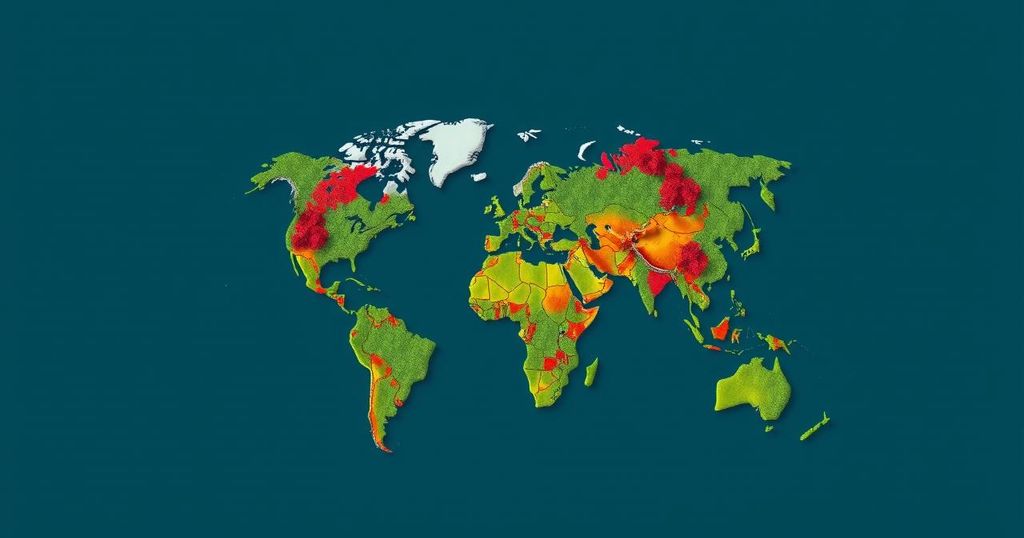Understanding the Vulnerability of Persons with Disabilities in Climate Change

Individuals with disabilities are disproportionately affected by climate change, facing unique challenges during environmental disasters. With over 1.3 billion people affected, their lack of representation in climate policies exacerbates their vulnerability. Advocacy efforts aim to elevate their voices in discussions, highlighting the need for inclusive strategies and community resilience initiatives to mitigate these threats and promote equitable outcomes.
The ramifications of climate change are disproportionately severe for individuals with disabilities, whose challenges are exacerbated in emergency situations. Many individuals with disabilities, numbering over 1.3 billion worldwide, are particularly vulnerable to the effects of climate disasters. For example, individuals with mobility challenges face significant obstacles during extreme weather events, such as hurricanes or floods, which can impede their access to safety and essential medical care.
Climate change can also adversely affect those with chronic illnesses, as exacerbated heat and poor air quality interact negatively with their medical needs. Individuals on certain medications may find that their conditions worsen under extreme heat, which may lead to increased health risks, including heat stroke. Data indicates that people with disabilities are two to four times more likely to succumb to climate emergencies, revealing a pressing need for inclusive emergency response strategies.
Moreover, empowerment and representation in climate discussions remain lacking for individuals with disabilities. Despite their heightened vulnerability, they are frequently omitted from critical policy dialogues, such as the United Nations Framework Convention on Climate Change (UNFCCC). Activists like Amina Audu advocate for a dedicated seat at the table for disability perspectives to ensure their needs are reflected in climate policies.
Nonetheless, initiatives aimed at building resilience within this community are emerging. Amina Audu’s organization, Rebuilding Hope on Wheels Initiatives, is one such effort, actively engaging disability advocates in environmental initiatives, thus fostering both community involvement and adaptation strategies.
The intersection of disability and climate change presents a unique crisis, wherein individuals with disabilities face disproportionate risks during environmental disasters. The magnitude of these challenges is not only a matter of individual health but also of social justice, as systemic barriers often exclude disabled individuals from disaster preparedness and response discussions. Globally, over 16% of the population is disabled, highlighting that this is a significant social issue that demands urgent attention. The growing frequency of climate-related disasters amplifies the need for inclusive strategies that account for the specific vulnerabilities of disabled individuals, aiming to create a safer and more equitable future for all.
In conclusion, the climate crisis poses unique and heightened challenges for individuals with disabilities, necessitating urgent adaptation and inclusive planning in climate policy discussions. Their voices must be integral to emergency response systems and climate adaptation strategies. Initiatives like those led by Amina Audu represent a critical step toward fostering resilience and mitigating the impacts of climate change for this underrepresented group. As the world navigates the complexities of climate change, ensuring that individuals with disabilities are actively included in the conversation is essential for achieving equitable outcomes for all.
Original Source: www.globalcitizen.org






